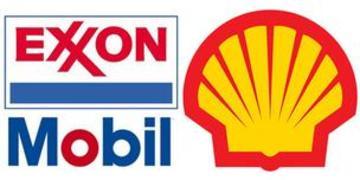Barely few years after officially exiting petroleum downstream operations, strong indications have emerged on the readiness of exploration giants, Shell and ExxonMobil to make a comeback.
The return mission is being driven by mouth-watering offering coming by the Nigerian National Petroleum Corporation (NNPC) for the duo to seal fresh crude-for-product deals.
Business Hilights recalls that the Corporation had earlier sealed similar understanding with BP.
Further light was provided by the NNPC´s chief operating officer for upstream, Bello Rabiu, saying “Though Shell and ExxonMobil exited the downstream sector in Nigeria a couple of years ago, they are coming back for this particular arrangement, because it´s an opportunity for them to get crude and sell their products to the refineries”
Explaining to world press on the sidelines of recent African oil and gas conference in Cape Town, Rabiu averred that NNPC hoped in 2019 to emulate savings of around $1 billion seen in 2016 with its crude-for-product swaps, which he said would likely end once Africa’s top crude producer revamps its refineries.
“If our refineries are back, which we want in the next 18 months, this thing will stop. So, all these things are just stop-gap measures, but the key issue is that we wanted to import at the least cost before our refineries come back on stream,” he said.
Our correspondent gathered that the Corporation is closing on sealing a refinery revamping understanding with consortium including top traders, energy majors and oil services companies to revive all four near moribund oil refineries.
He said the aim of the new drive is to reduce NNPC’s current over reliance on imported fuel.
Continuing, Rabiu said “It is on track and I believe if we don’t sign a final deal (on the project to upgrade refineries) this month of November we will surely sign in December.”
Rabiu said NNPC hoped in 2019 to emulate savings of around $1 billion seen in 2016 with its crude-for-product swaps, which he said would likely end once Africa’s top crude producer revamps its refineries.
“If our refineries are back, which we want in the next 18 months, this thing will stop. So, all these things are just stop-gap measures, but the key issue is that we wanted to import at the least cost before our refineries come back on stream,” NNPC said.
Statistics show that Nigeria’s NNPC imports about 70 percent of Nigeria’s fuel needs, mainly gasoline, via swap contracts under direct sale direct purchase agreements (DSDPA), with 10 consortiums that include trading houses Vitol, Trafigura, Mercuria and Total.
Only recently, the expiring crude swap understandings were renewed up to June 2019.
This is as there is strong campaign by the existing crude swap dealers for a review of their financial terms in view of unfolding happenstances in the global oil market.








